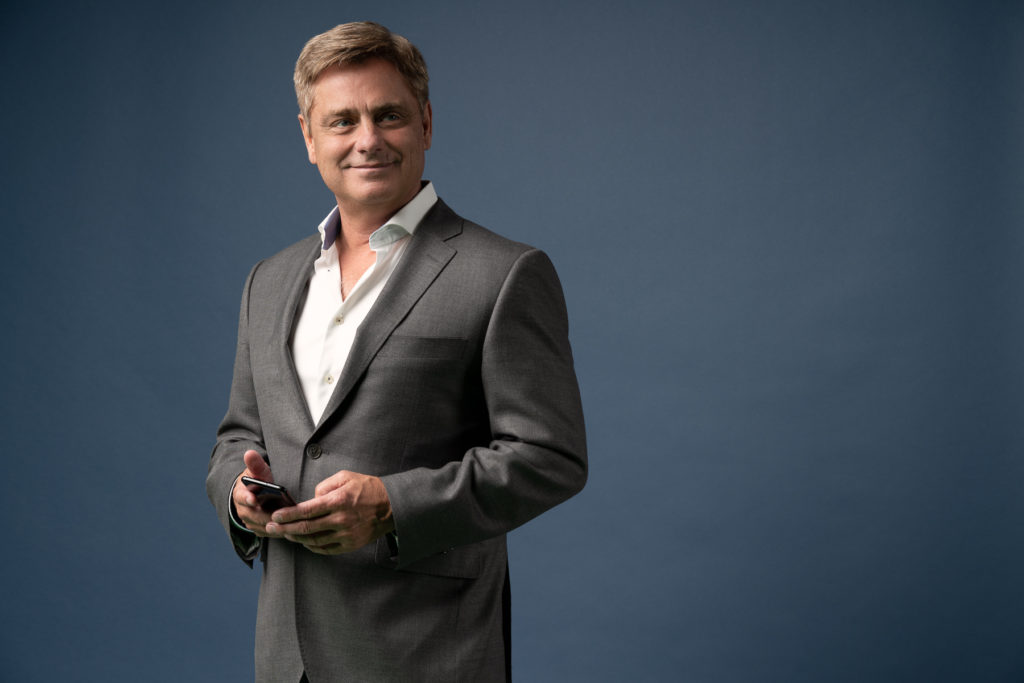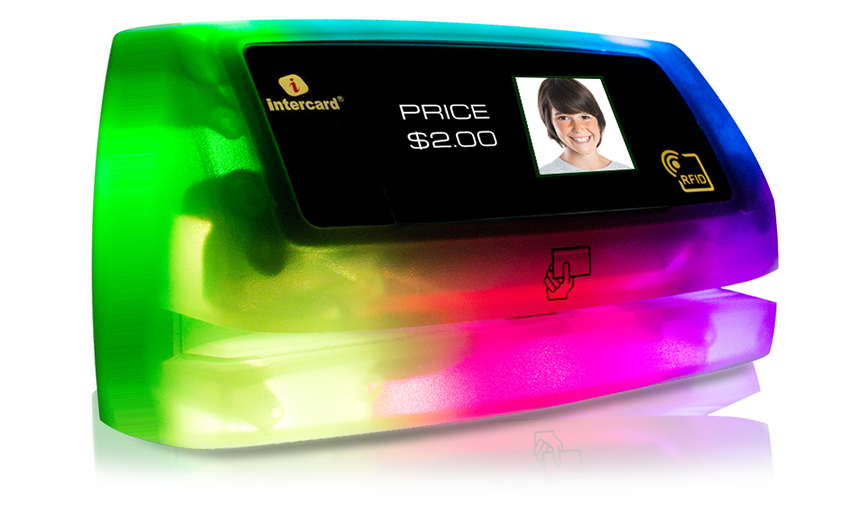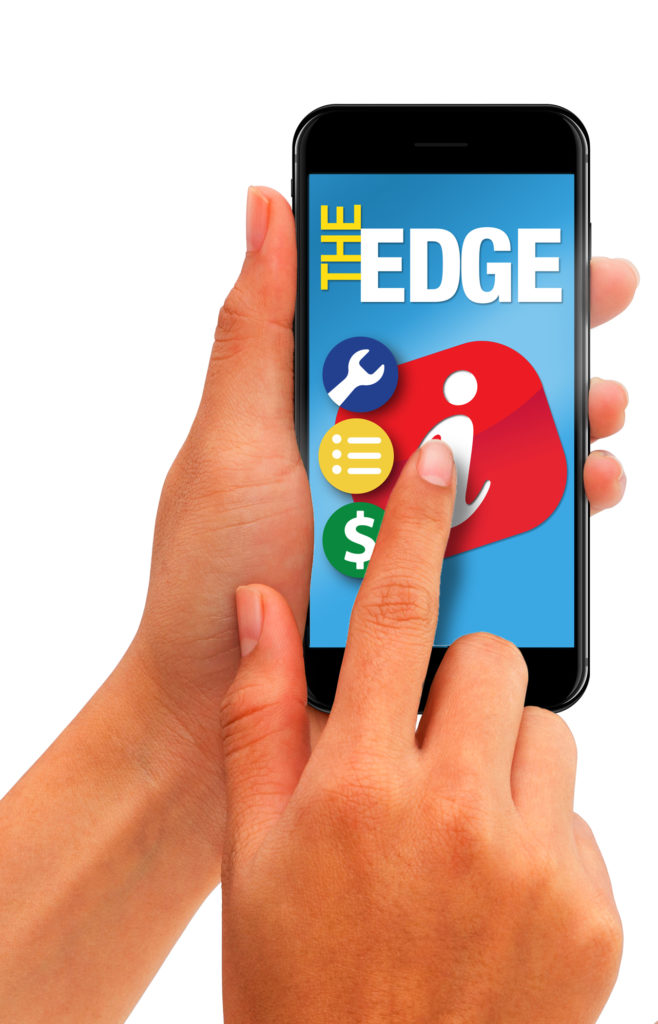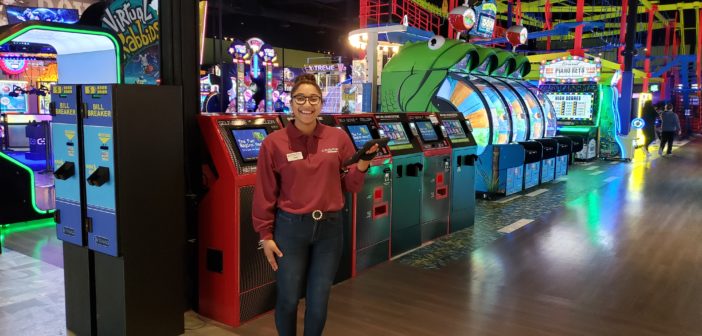Keenly Focused on Payment Trends
Intercard’s Scott Sherrod Sees the Future as 100 Percent Cashless
by Robert Sax

Intercard CEO Scott Sherrod
If you’ve been in an FEC recently –– and who in this industry hasn’t –– you’ve probably noticed that while cash isn’t obsolete, it isn’t king anymore either. Cashless technology has been proliferating in arcades and game centers around the world for several years now, and quarters, tokens and even paper bills are becoming a thing of the past in many cases.
That’s no surprise to Scott Sherrod, the CEO of Intercard. The company founded by his father, Ray Sherrod, has been offering cashless technology to several industries since 1979. “The future of payment is 100 percent cashless, and the future is here for our growing global family of customers,” said Scott.
“I have learned a lot about the future direction of our industry just from being a father and giving money to my children and grandchildren,” he added. “My kids won’t allow me to give them cash anymore, only electronic transfers or direct deposit.”
While Sherrod believes cash will never completely go away, in the next 3-5 years he thinks the industry will be forced to go 100 percent cashless because younger consumers will demand it. “The evolution of cashless technology and the rapid adoption of consumer mobile devices allows customers to pay for games, rides, food and more with a mobile device. That’s the game-changer.”
Sherrod also emphasizes what he sees as the other benefits of going completely cashless.
“For operators, it simplifies payment, reduces cash handling, enables customer loyalty programs and stimulates new kinds of marketing campaigns because the systems collect emails and other contact information,” he says.
Recent case histories tell how many Intercard customers are already reaping the benefits of going 100 percent cashless, the company says. Jeff Benson, founder of Cinergy Entertainment, was an early adopter of cashless technology with Intercard equipment (he has movie-theater anchored FECs in Texas and Oklahoma). He credits Neal Hupfauer, founder of Main Event and a former president of Cinergy, with the inspiration.

Intercard’s i3 reader.
“Neal was very much an advocate for cashless. He thought it was the wave of the future,” said Benson. “So, we made the decision we were going to give it a try. We wanted to be ahead of the curve.“
The initial idea was to speed up game play for arcade players by freeing them from handling coins and letting them collect points from redemption games on a card instead of collecting bags of paper tickets. This made for faster play and simplified the redemption process, making it easier for customers to collect points over time for larger prizes. This in turn helped generate return visits.
Cinergy began enjoying the additional advantages of cashless technology when Intercard extended its platform to integrate with Cinergy’s food and beverage service and movie ticketing.
“It was a huge factor for us and Intercard really gave us that ability to have that bridge,” said company COO Darek Heath. “Cashless makes the experience that the guest has within our facility so much more streamlined. It lets them spend money when and where they want to…as quickly as possible without having another transaction.”
One of Intercard’s European customers, Sertronic Ocio, operates multiple Drago Park amusement centers for kids in Spain and the Canary Islands. Bouke Grünefeld, the company’s chief accountant, was looking to go completely cashless for reasons similar to those of Cinergy, but number one was the desire to reduce employee theft and customer fraud.
His first move was to introduce CashDro automated cash management machines to the parks, which eliminate cash handling by employees. The next step was to eliminate the use of coins in games and attractions at the parks. For this Grünefeld researched 100 percent cashless systems at an IAAPA Expo, ultimately choosing Intercard. “We decided to go with Intercard because they just seemed the most professional,” said Grünefeld.
Not only did Intercard’s card system eliminate theft and coin problems, he said it also boosted revenues by as much as 30 percent once customers and staff adapted to them. “You get people to spend more in your park,” said Grünefeld who offers a variety of bonus offers to customers that give them additional game play when they spend more.
Sherrod explained, “Customers are able to take advantage of “happy hours” or package deals that aren’t possible with coin-operated attractions, and they are even able to recharge their accounts or check their redemption points balances remotely.
“Cloud storage of customer information also means they can visit multiple locations without juggling multiple cards or devices, and if they lose their card, they don’t lose their balance or points,” he added.
Grünefeld said many of their customers love this feature, especially at the parks in tourist areas, because they can take the card (and any unused credits) home with them and spend them later at other Drago Parks. Grünefeld recalled one instance where a card originally purchased at his park in Seville was later used at a park in the Canary Islands, a three-hour flight away. While the customer obviously didn’t go to the Canary Islands just to use the card, those collected credits led to a visit to the local Drago Park that they might not otherwise have made.
While Sherrod believes the move to 100 percent cashless operation is inevitable, he assures proprietors that they need not go totally cashless all at once in order to reap the benefits of Intercard technology. One example is Eric Esterson, owner of the long-running Shore Fun Arcade in Bethany Beach, Delaware.

Intercard’s Edge gives operators the edge.
Playing arcade games is a summertime tradition at the beach towns of the Delaware Shore, and for many, using quarters is a big part of the fun. “People save up their quarters all year and then come down for summer and spend them in here,” Esterson said. So when he decided to enjoy the benefits of modern cashless technology in his 100-plus games, he also wanted to accommodate tradition by continuing to accept coins.
“We didn’t want to get away from having a quarter option. But we also wanted the flexibility of offering bonuses for players that buy in for higher amounts, and take credit cards,” said Esterson. He also plans to introduce birthday parties next season, as well as “dine and play” packages with local restaurants. All of these become possible with a hybrid system installed by Intercard, and he will have the option to easily go completely cashless in the future.
Jim Kessler, the owner of Lasertron in Buffalo, N.Y., has looked keenly at both sides of the cash/cashless equation. As a technologist who also manufactures laser tag equipment, he says he’s sold on the security of cashless systems and like many operators has longed to reduce or eliminate employee theft from his two FECs. But he is also mindful that some customers, especially older ones, will need some TLC in making the transition to a cashless environment.
“We went 100 percent cashless, meaning you have to use a Lasertron card, which is an Intercard debit card. You put $20 on it and you can spend it anywhere in the building,” Kessler said. Customers can pay for their cards at kiosks or counters with cash, debit cards or credit cards. But he also designed his own bill acceptors and bill breakers and placed them at every POS terminal, allowing customers to make exact payment with smaller bills if they choose.
He rounded all his prices up or down to the nearest dollar as well, so that no customer would be annoyed by having just 50 or 25 cents “stuck” on their card. “So we’re basically a cashless hybrid where no human being takes cash and puts it in a drawer,” he said. “We still accept cash, but it’s only a machine that’s going to take it.”
Intercard says the flexibility of their system made Lasertron’s proprietary hybrid setup possible, as does their strong customer service. “I like the way they design their system and I can actually call Scott Sherrod and he’ll answer the phone,” Kessler said. “If there’s a problem, they fix it.”
Sherrod has a degree in aerospace engineering from St. Louis University. An experienced developer who knows how to code, he is personally involved in the creation of Intercard’s software. Due to his expertise, he also understands how technology will affect the future of the industry.
Reliable technology and great customer service are so important that Sherrod recommends that any operators considering a 100 percent cashless management system check whether the vendor develops their own software and hardware. “Intercard does both in-house,” he said, “and we have a live, 24-hour-a-day, 7-days-a-week customer service department with reps who know our technology. Don’t let slick marketing fool you, not all cashless technology vendors have 24/7 customer service.”
He also urges domestic proprietors to keep up on trends as he feels the U.S. is already lagging behind in going completely cashless. “Look at the popularity of the WeChat app in China,” he says, referring to the social messaging and payment mobile app that claims more than 760 million active users.
As you’d expect, Sherrod and his team work diligently to keep abreast of cashless payment technology.
“To be at the top of technology in our industry you have to constantly track research and trends because if you take your eye off the ball you could miss the future,” Sherrod said. “I’m 100 percent committed to this industry and the customers we serve through the software and hardware that my team and I work on every day. Seeing our global family of customers thrive by using our products and increasing their revenues gives me pure joy.”
For more information on Intercard’s technology and products, visit www.intercardinc.com.




